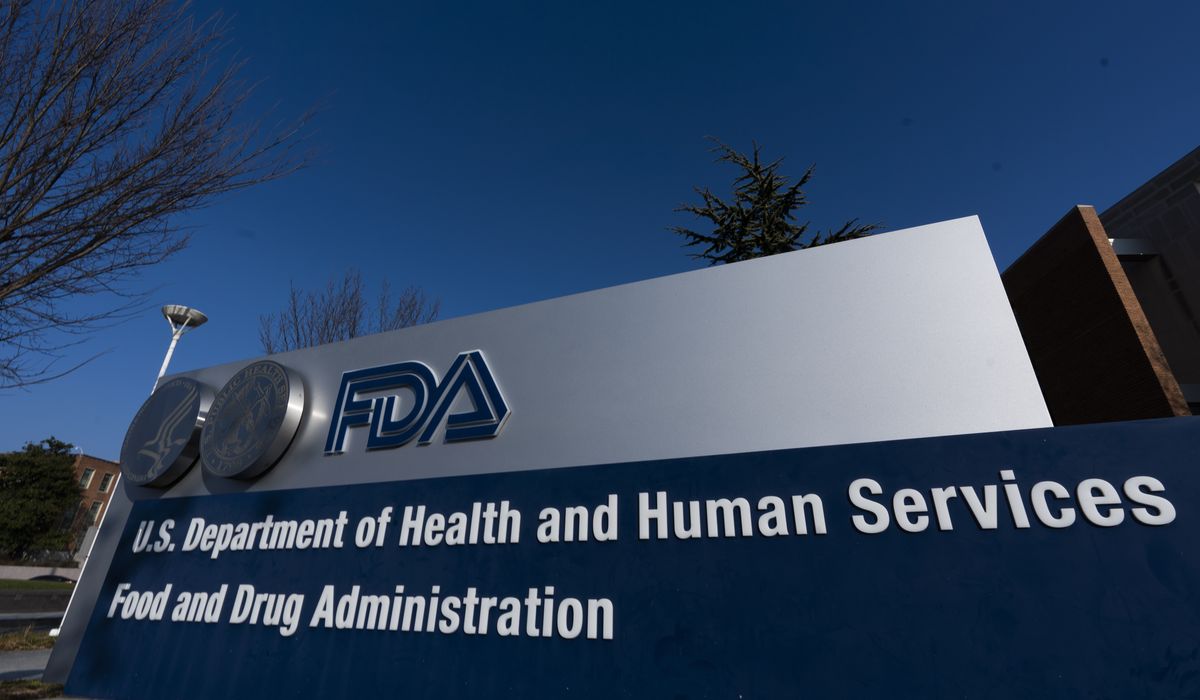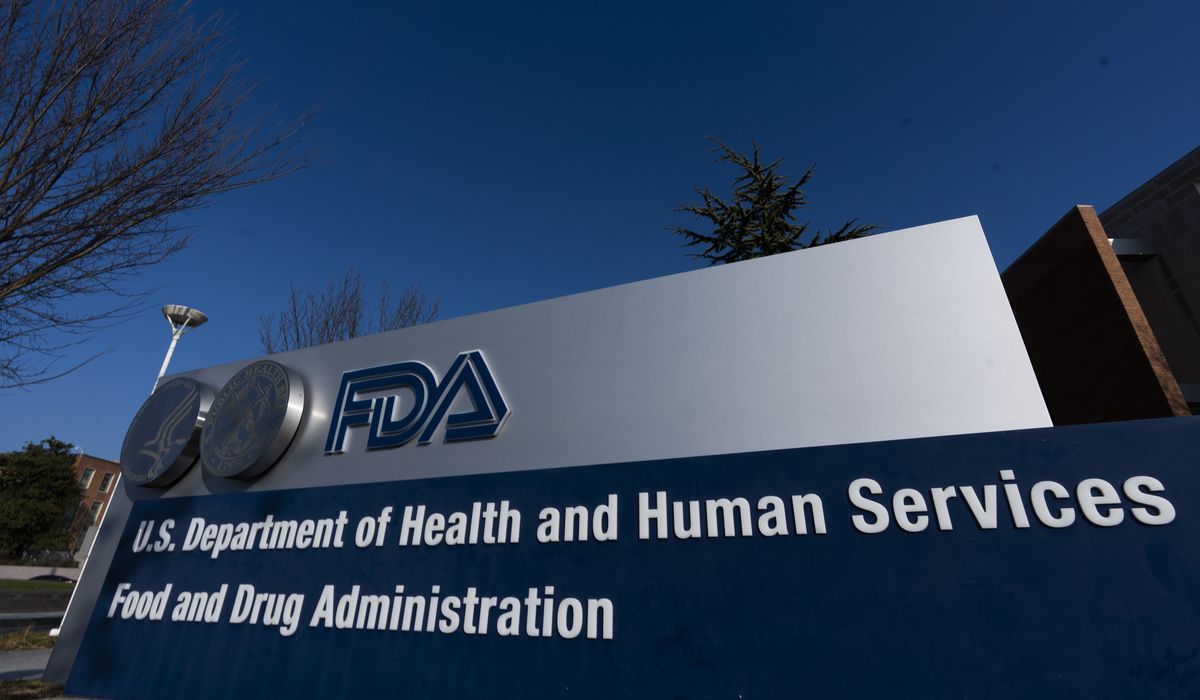
Food and Drug Administration officials said in July that Pfizer’s application for full approval of its COVID-19 vaccine would enjoy “priority review,” and set a target deadline for finishing by January 2022.
They beat the deadline easily, licensing the shots in late August. That’s faster than other vaccines and drugs that have been marked as priorities for the agency.
Merck’s pneumococcal vaccine took six months and its Ebola vaccine took three months, while certain cancer drugs were vetted for four to five months, according to Aaron Lottes, an associate professor of engineering practice at Purdue University who tracks the issue.
For one thing, there was plenty of data available to the FDA on the Pfizer shots, which have been given to tens of millions of people, instead of tens of thousands.
Pfizer and another COVID-19 vaccine maker, Moderna, also have enjoyed “fast-track” status since the summer of 2020, allowing frequent interaction with regulators and real-time submission of data as the FDA deploys all its tools to cope with the pandemic.
Regulators saw data as it rolled in over the course of months, instead of cramming in the midsummer for the Pfizer approval.
“The fast-track process allows for more frequent communication and discussion with FDA, eligibility for priority review, and eligibility for a rolling review,” Mr. Lottes said. “The shorter timeline also reflects the tremendous effort put in by the FDA review team. Based on the urgent need, FDA diverted extensive resources to focus on this review and ensure that safety and effectiveness were thoroughly evaluated while also completing the review as timely as possible.”
Drugmakers and the FDA continue to work at a frantic pace as the U.S. tries to wrangle a virus that’s killed more than 680,000 Americans and mutated into fast-moving forms, prolonging an unprecedented vaccine effort that began with speedy development under the Trump administration.
The situation is forcing drugmakers and regulators to walk a fine line as they pivot from the “warp speed” approval of three vaccines to frenzied work on booster shots and vaccines for school-aged children — while maintaining faith in the process.
The FDA late Wednesday authorized Pfizer booster shots for seniors, people at high risk from COVID-19 and those in dangerous occupations under what’s known as an emergency use authorization. It’s a standard that’s less rigorous than full approval, and deems that the benefits of a vaccine or treatment outweigh the risks in a crisis.
“FDA is still applying high standards, but the EUA process allows for quicker action,” said Joshua Sharfstein, a professor at the Johns Hopkins Bloomberg School of Public Health.
The FDA also pledged to work around the clock in making shots available for kids on an emergency basis, though the agency insisted it wouldn’t get sloppy.
“Just like every vaccine decision we’ve made during this pandemic, our evaluation of data on the use of COVID-19 vaccines in children will not cut any corners,” acting FDA Commissioner Janet Woodcock and Peter Marks, director of the Center for Biologics Evaluation and Research, wrote in a lengthy Sept. 10 statement. “When a completed request for EUA or approval has been received by the FDA, the agency will carefully, thoroughly and independently examine the data to evaluate benefits and risks and be prepared to complete its review as quickly as possible, likely in a matter of weeks rather than months.”
Experts say the U.S. is in somewhat unchartered territory.
The country didn’t wield emergency-use authorizations until the post-9/11 period, when there were concerns about medical readiness for a bio-terror attack. The FDA issued emergency approval of a vaccine that combats inhaled anthrax in 2005, prompting the Defense Department to distribute it to some at-risk personnel.
“EUAs were used pretty sparingly till recently. There was some use in 2009 related to H1N1, but other than that you don’t see many notable uses,” said I. Glenn Cohen, a health expert at Harvard Law School. “In terms of its pre-history, you might trace it to some of the pressure FDA faced during the AIDS crisis at being too slow to meet the needs of the infected, which among other things prompted it to introduce a priority review designation and accelerated-approval program in 1992.”
Speed has been a critical factor since the start of the pandemic, with former President Donald Trump touting his Operation Warp Speed for delivering a vaccine in record time.
The operation placed bets on multiple vaccine platforms, each with decades of research behind them, and sped the process by funding trials, pre-purchasing doses and greenlighting manufacturing while the drugmakers tested their vaccines trials and submitted data to regulators.
“They could go right one after the other, phase 1 to phase 3,” Dr. Sharfstein said. “Usually, there’s a big space in between, in part because companies are trying to decide whether the evidence is good enough to pay for the next study.”
Even Pfizer, which funded its own effort, knew it would get a big government contract for doses.
“I can’t think of another vaccine where it was such an urgent issue and all the funding was provided upfront,” Dr. Sharfstein said. “This is probably going to change the standard. I think particularly for emerging infections, we’re going to expect the stages to progress rapidly and not to have delays in the process.”
Mr. Biden is learning that sometimes, things go too fast.
Advisers to the FDA pumped the brakes on his plan to provide third doses to everyone who received their second doses from Pfizer or Moderna at least eight months ago, limiting their recommendation to seniors and persons at high risk of infection or disease. Members of the advisory panel said not enough is known about the possible risks of boosters and that only a small number of people have received these extra shots.
FDA leaders accepted the recommendation. Also, advisers to the Centers for Disease Control and Prevention voted Thursday in support of a booster regimen for those 65 and older, persons ages 50 to 64 who have underlying health conditions and medically frail persons younger than 50 who want another dose.
Meanwhile, the FDA is poised to vet vaccines for children who are younger than 12.
Pfizer on Monday said its COVID-19 vaccine is safe and generated a “robust” antibody response in children aged 5 to 11, a positive sign as parents clamor to protect their children against the virus.
The company said the children received two doses, three weeks apart, each at 10-micrograms — about one-third of the dosage for teens and adults.
The findings were from a trial involving 4,500 children. The company’s press release was based on safety and immune response data from 2,268 participants whom it had data on “by the time we shared the information publicly, which is routine in top-line readouts during the pandemic” according to Pfizer.
The number of participants may seem small, after reports of massive trials last year enrolling tens of thousands of adults from around the world. But experts say it is a standard practice to take data from large study groups and then use it to infer protection in pediatric populations. They measure antibody responses in younger groups against a similar marker in an older population.
“These are typical [enrollment] numbers for pediatric vaccine trial sizes when there exists a large evidence base regarding vaccine safety and effectiveness in older populations, as there is for the Pfizer vaccine,” said Jason Schwartz, an associate professor at the Yale School of Public Health.
Pfizer said it agreed with regulators ahead of time to use the “immunobridging” technique, comparing the immune signal in those aged 5 to 11 with a control group of those aged 16 to 25.
The antibody response compared well with the older group and will form the backbone — along with safety data — of Pfizer’s application for emergency approval of the shots in the coming weeks while the company gathers additional safety and efficacy data it will need for full approval in the 5-11 age group.
Many parents are eager to get their kids protected, though some say they’re in wait-and-see mode, citing the limited study.
“A lot of parents understand that their children are already at a very low risk of severe illness,” said Michael Bars, who served as a senior communications aide in the Trump White House. “So if your child taking the jab is mostly about being cautious in the event your child could be the outlier that gets really sick, then it would be natural to wait until larger, longer-term studies yield concrete results.”
Another lingering question is whether myocarditis, an inflammation of the heart muscle, will occur in younger people after vaccination. Though rare, the issue has been detected in young males who’ve received the shots.
Mr. Lottes said it demands follow-up as regulators determine if Pfizer’s applications for kids deserve emergency approval.
“This is very important to consider as the age groups potentially being vaccinated get younger,” he said. “Since this is a rare occurrence, large studies may be needed to assess the true rate and further evaluate side effects and FDA has required multiple post-market studies of the approved vaccine to further follow-up on this event.”








